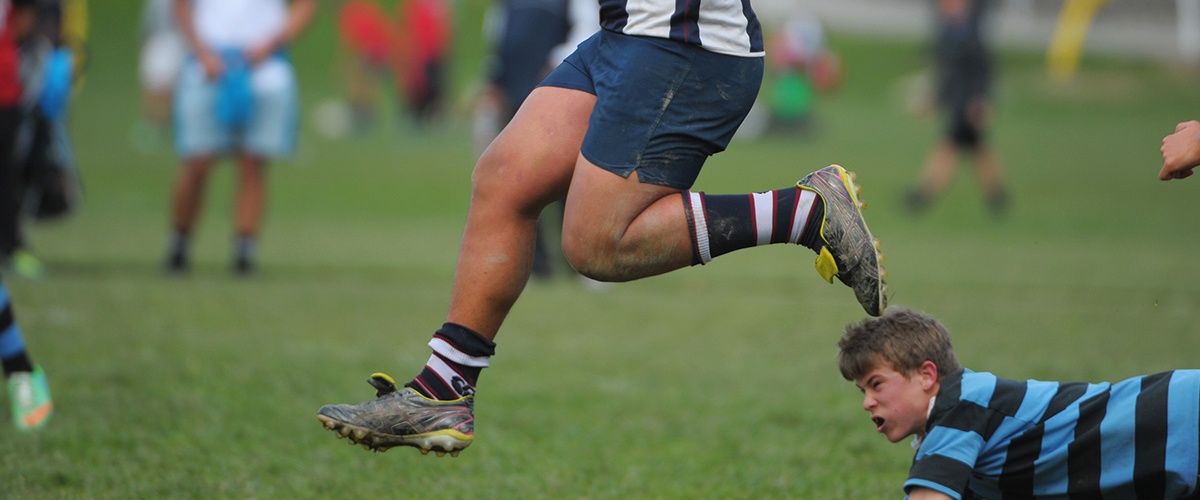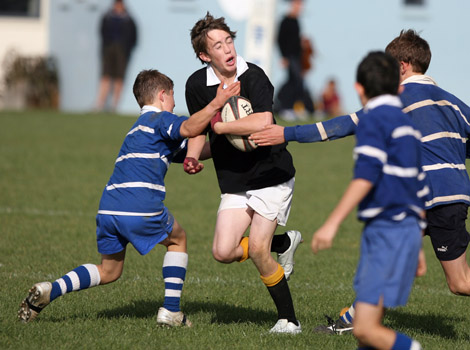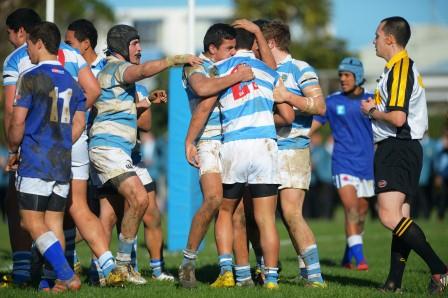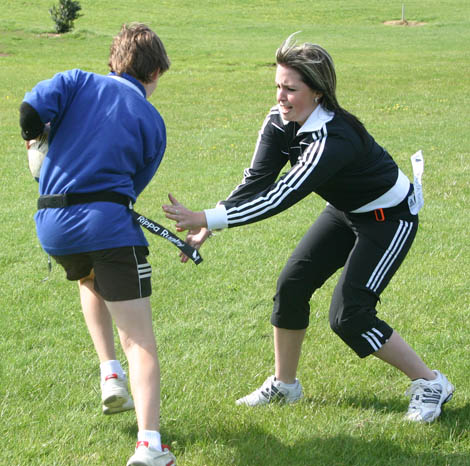- Rugby Toolbox
- The Game
- Teen Rugby
- Teenager
- Growth and Development
Growth and Development

The landscape is changing
Numerous mental and physical changes occur throughout adolescence, and this effectively brings about the biggest challenge when coaching teens, as they evolve as people and begin to think differently about the world.
In rugby, changes to their bone structure, as well as core strength and speed, mean that their style of play changes to suit.
So coaches need to consider not only the players’ physical needs but also their social, emotional and cognitive needs.
By adapting plans and activities to suit the needs of players in terms of growth and development, the coach can help the players to progress through rugby in the way that best suits them.
Note: A young person’s developmental age can differ by as much as two years from his or her chronological age. For example, a player who is 12 calendar years old could be anywhere from 10 to 14 in developmental age.
The Physical Domain
There are two elements included in the physical domain:
1. Growth and changes that occur in a person’s body
2. Motor skills
It is important for the coach to understand and appreciate both of these elements as they each affect the player’s physical performance.
The Psycho-social Domain
This domain includes emotional, personality and social development. This is important for coaches to understand so they can plan and cater to players as individuals, for example, determine the kinds of competition a player is capable of dealing with.
The Cognitive Domain
This domain includes all the mental processes that are used to obtain knowledge and increase awareness of the environment. It involves the players’ understanding of the tactics and strategies of the sport and their decision-making abilities.
11–16 Years
Physical Domain
• Concern about physical development.
• Displays rapid but uneven physical growth, leading at times to awkwardness, uncoordinated movement, tiredness, lack of confidence and poor posture and/or gait.
• Increase in female and male hormone levels.
• Increase in height, weight and musculature.
• Males develop deeper voices; characteristic patterns of facial/body hair become stronger.
• Females become wider at hips; breast development continues for several years.
• Needs to continue fitness activities, especially those that develop flexibility, circulo-respiratory efficiency and muscular strength and endurance.
• May reach physical maturity.
• Has capabilities to learn new motor skills, refine those previously learned and apply them with more efficiency.
• Capable of combining new and more complex skills into movement patterns and sequences.
• Able to use rhythm effectively in a variety of activities.
• Continues to need repetitive practices and revision in learning and refining skills.
Psycho-social Domain
• Needs to achieve identity.
• Increasingly concerned about acceptance by friends, social graces and good grooming.
• Peer group becomes increasingly important in fostering independence and interaction with members of the other sex.
• Early or late puberty can be very stressful.
• Continued development of independence, yet wants and needs adult help.
• Ready for in-depth, longer learning experiences.
• Often unclear about needs and values, but beginning to think about them.
• Has a continuing need for reinforcement and development of self-esteem, especially in relation to body perception and exercise.
• Increasingly capable of making informed decisions and accepting a leadership role, though often may choose not to do so.
• Requires opportunities to be creative and may need consistent encouragement.
• Shows tolerance of needs and abilities of others.
• Needs opportunities to develop confidence based on previously learned skills, to explore challenging new experiences and to be creative.
Cognitive Domain
• Can concentrate and participate in activities for longer periods of time.
• Egocentrism, along with feelings of uniqueness and invincibility, often cloud judgment.
• Capable of formal operational thought, enabling them to understand and articulate general principles.
16 Years Onwards
Physical Domain
• Continues to grow, though most have reached physical maturity.
• Shows improved posture and coordination in coping with physical changes.
• Needs to continue fitness activities, especially those that develop flexibility, circulo-respiratory efficiency, muscular strength and endurance.
• Can achieve advanced levels in complex skill and movement efficiency.
• Able to learn new skills in a short time.
Psycho-social Domain
• May begin to specialise in some skills and lose others.
• Has social needs and desires that are strong.
• Wants and needs own voice in planning.
• Wants adult leadership roles.
• Interested in co-educational activities.
• Has more consistent areas of interest.
• Developing a community consciousness.
• Team and group allegiance important.
• Developing into an independent person who is increasingly able to make choices, solve problems, and accept responsibility for own actions.
• Developing more stable and emotional responses.
• Making conscious decisions about physical activity and lifestyle.
Cognitive Domain
• Thinking becomes more practical and adaptive to take into account logical reasoning.
• Changes are multi-directional and depend on education and understanding of the world.
Skills, strategies, tactics and games
The following provide general recommendations on skills, strategies, tactics and games appropriate for each developmental phase. This information is designed to be used as a reference for when you are planning your coaching sessions. By incorporating this information into your coaching programme you will enhance the development of the player in both sport and life in general.
11–16 Years
Skills
• plan and teach more refined skills
• prepare activities that include more aerobic fitness
• plan learning activities related to understanding self and getting along with others
• concentrate on developing individual skills
• continue to teach warm-up and cool-down principles
• use questioning and self-awareness in the feedback process
Strategies
• provide opportunity for leadership in a group setting
• encourage learning experiences involving boys and girls
• allow the players to take more responsibility for planning team/individual activities
• continue to reinforce players positively
• use multiple incentives to motivate players
Tactics
• recommend well-structured competitive activities that focus on one thing at a time
• introduce tactics as skills become more proficient
• use previous games as a sample for explaining tactics
• let players suggest possible tactics through self-awareness and questioning
Games
• use a modified or scaled-down version of the activity in the early stages of this phase, the full game or activity toward the end of this phase
• allow players to try all positions
16 Years Onwards
Skills
• teach and refine all skills of the sport
• train both anaerobic and aerobic systems
• continue to warm-up and stretch thoroughly
• plan individual skill activities as well as team skill activities
• use questioning and self-awareness in the feedback process
Strategies
• foster player individual as well as group participation
• continue to build the player’s self-esteem
• allow players to plan programmes
• promote open communication
• apply leadership skills to problem solving and decision-making
• continue to use individual and group goal-setting
• use multiple incentives to motivate players
Tactics
• teach and refine all the strategies and tactics of the sport
• encourage players to suggest possible tactics
• participate in demanding, high-level competition
Games
• play the full game or activity rather than a modified version
• emphasise specialisation of position or event
In conclusion, five coaching principles support all the growth and development considerations presented:
• keep the fun in rugby
• design training and competition appropriate for young players
• develop a foundation of solid techniques
• keep competition in perspective
• guard against over-specialisation.